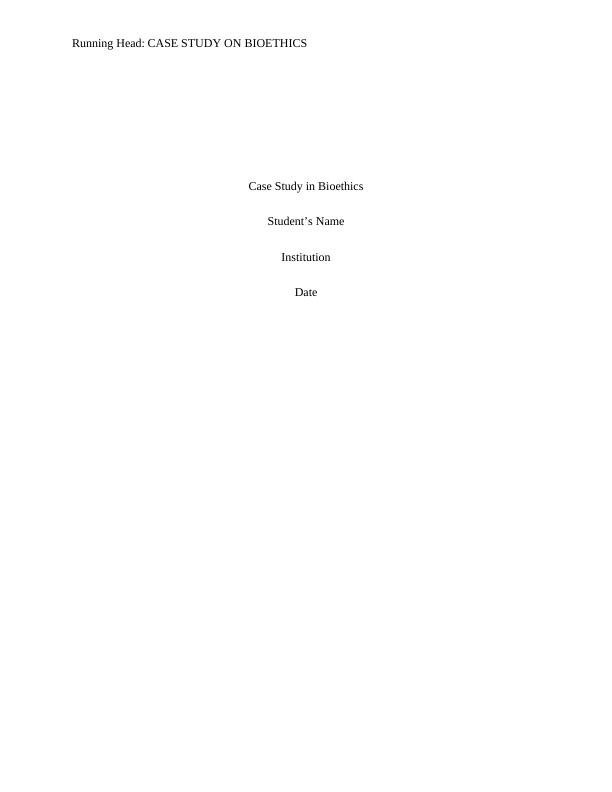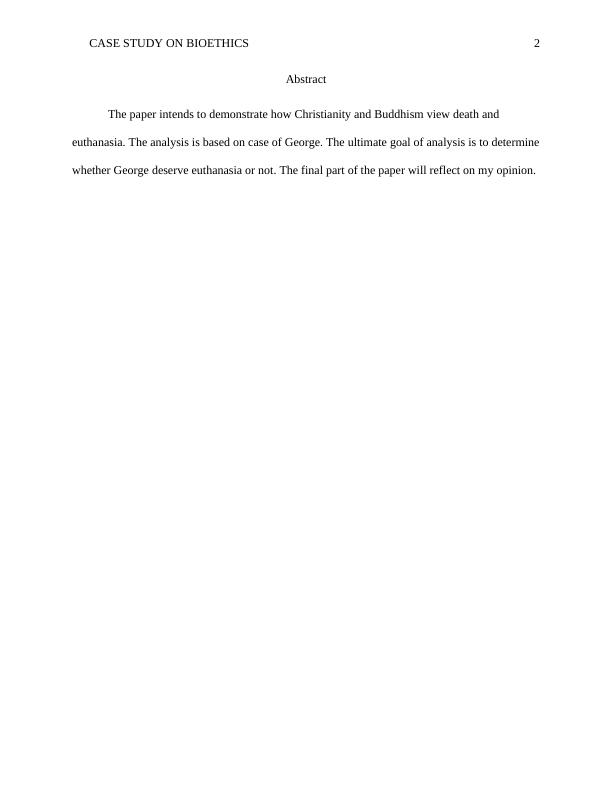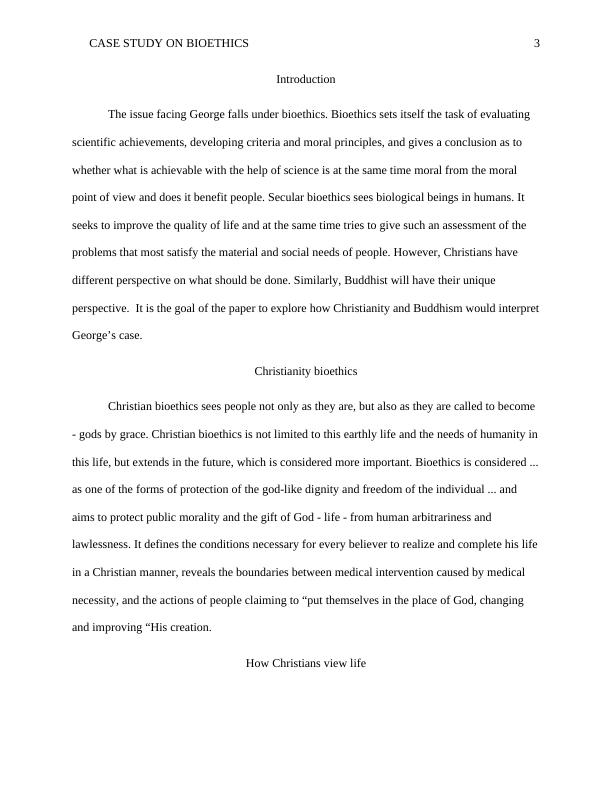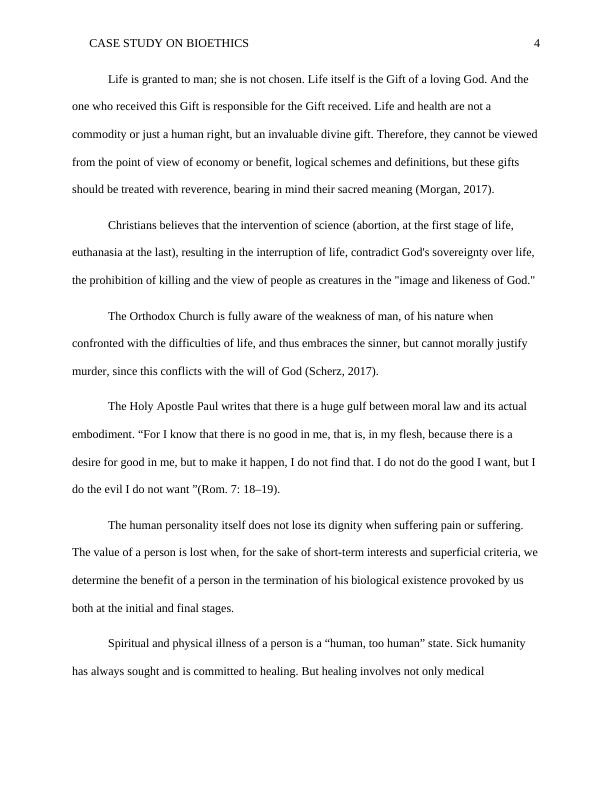Case Study in Bioethics
11 Pages2721 Words479 Views
Added on 2023-06-03
About This Document
This paper analyzes the case of George to explore how Christianity and Buddhism view death and euthanasia. The paper argues that both religions do not support euthanasia and presents different perspectives on how to approach end-of-life care. The author also presents their opinion on the matter and discusses the ethical issues surrounding physician-assisted suicide.
Case Study in Bioethics
Added on 2023-06-03
ShareRelated Documents
End of preview
Want to access all the pages? Upload your documents or become a member.
Euthanasia in Christian and Buddhist Worldviews: A Moral Analysis
|10
|2440
|437
Case Study Analysis on Death and Dying Case
|12
|2695
|365
Comparative Analysis of Two Religion
|10
|2193
|266
Case Study on Death and Dying
|12
|2996
|156
Euthanasia is not ethical due to religion
|6
|1134
|54
Ethical and Spiritual Decision Making in Healthcare
|8
|1738
|49




